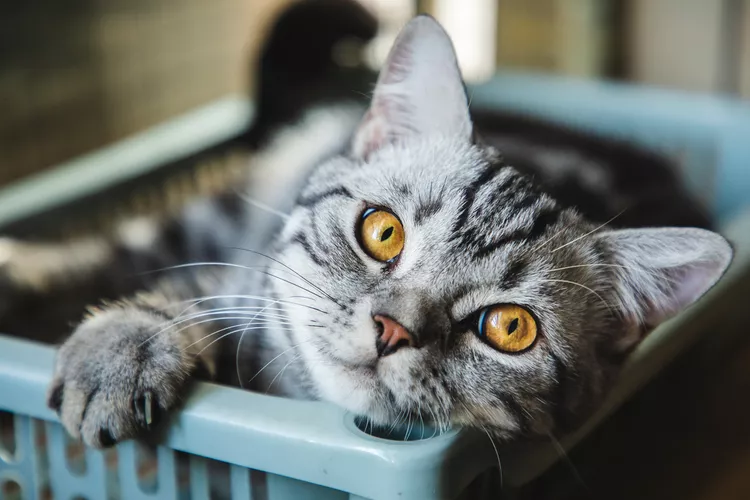Glaucoma in Cats

Glaucoma is an eye disease that affects cats as well as humans. It causes a painful increase in pressure inside the eye and can lead to blindness. With early veterinary treatment, including eye drops to reduce pressure, cats can usually retain their vision and live comfortably with this disease.
What Is Glaucoma?
Glaucoma is an eye disease characterized by increased intraocular pressure due to impaired drainage of fluid within the eye. If the fluid, called aqueous humor, is unable to drain properly, then it increases pressure within the eye. Over time, this pressure can damage the eye. Glaucoma is a progressive condition, meaning it typically gets worse over time.
Symptoms of Glaucoma in Cats
Glaucoma may not be easy to see in its early stages, so owners must watch their cats' behavior for signs of eye discomfort. Many of these symptoms resemble those of other eye conditions and should be evaluated by a veterinarian to determine the cause. Glaucoma may affect one or both eyes.
In addition to signs of eye discomfort, a cat's behavior may change as the disease progresses, becoming less social or lethargic due to pain as well as failing vision. If vision becomes significantly impaired, the cat may appear clumsy, misjudge distances when jumping on or off surfaces, and bump into things—especially unfamiliar objects in the home environment.
Causes of Glaucoma
Glaucoma is categorized as either primary or secondary. Primary glaucoma is congenital, meaning present from birth, and it is rare in cats (although Burmese and Siamese cats appear to have a genetic predisposition to this form of the disease).
Secondary glaucoma is the most common form of glaucoma in cats, and it can occur as a result of conditions that damage the eye or prevent proper drainage, such as:
- Uveitis (inflammation inside the eye)
- Anterior lens luxation (displacement of the entire lens, which blocks drainage)
- Eye trauma
- Advanced cataracts
- Tumor or similar or growth inside the eye
Diagnosing Glaucoma in Cats
Eye disorders may have several signs, so specific eye tests are needed to diagnose glaucoma in cats. Your vet will begin by discussing your cat's history and performing a physical examination.
When examining the eyes, your vet may use a special lens to look at the structures in the eye for evidence of glaucoma. If glaucoma is suspected, your vet will want to check intraocular pressure with a tonometer. The instrument is placed just over the surface of the eye and measures the pressure inside the eye. If the pressure is consistently elevated and other signs of glaucoma are present, then your vet will likely diagnose glaucoma in your cat.
In some cases, your veterinarian may refer you to a veterinary ophthalmologist for consultation. These eye experts have advanced knowledge and specialized equipment that enables them to confirm a glaucoma diagnosis and recommend the most effective treatments.
Treatment for Glaucoma in Cats
Initial treatment for glaucoma generally involves the use of eye drops to reduce intraocular pressure and inflammation. Medications like dorzolamide and timolol work to decrease pressure in the eye.
Steroids may be used to reduce inflammation. Glaucoma can be difficult to manage, so expect to see your vet for follow-up visits periodically. Your vet will monitor eye changes and adjust medications as needed.
Surgery may be recommended in cases of severe glaucoma and those that don't respond well to medical treatment. Sometimes, laser surgery can correct the drainage of the aqueous humor. In cases of blindness or poorly managed disease that causes ongoing pain, your vet may recommend complete removal of the eye.
Prognosis for Cats with Glaucoma
There is no way to reverse the eye damage done by glaucoma, so early detection is the best way to preserve vision and prevent extreme pain. Although glaucoma is generally a progressive condition, dedicated treatment and management with regular veterinary evaluation can help cats live relatively normal lives.
How to Prevent Glaucoma in Cats
There is no absolute way to prevent glaucoma from occurring in cats. Since primary glaucoma is hereditary, it's important not to breed cats with primary glaucoma. Secondary glaucoma may be prevented if an eye condition is detected before it causes glaucoma. This is why routine veterinary examinations (every year or more) are so important. Your vet may be able to detect eye changes before glaucoma begins or in its earliest stages.